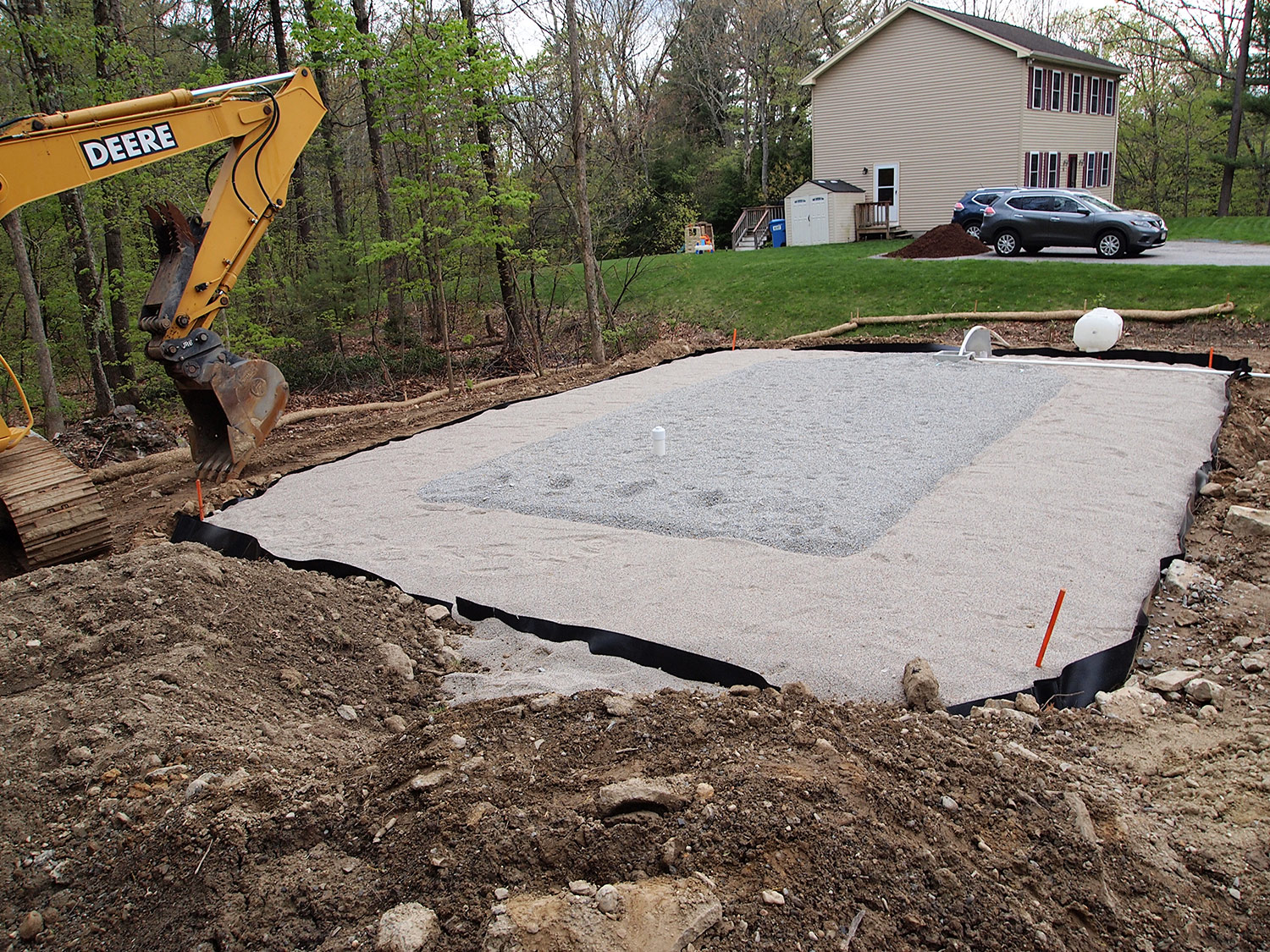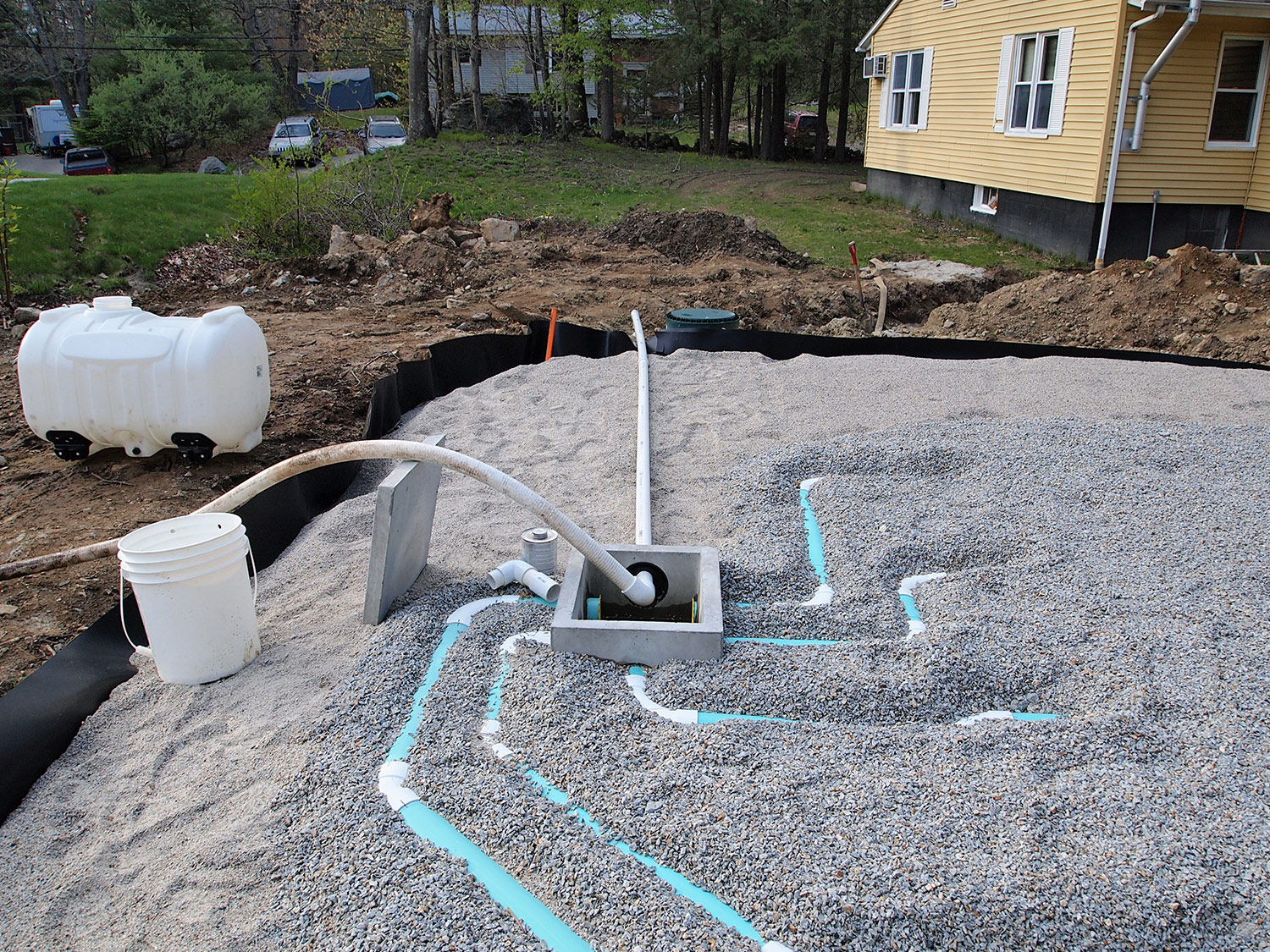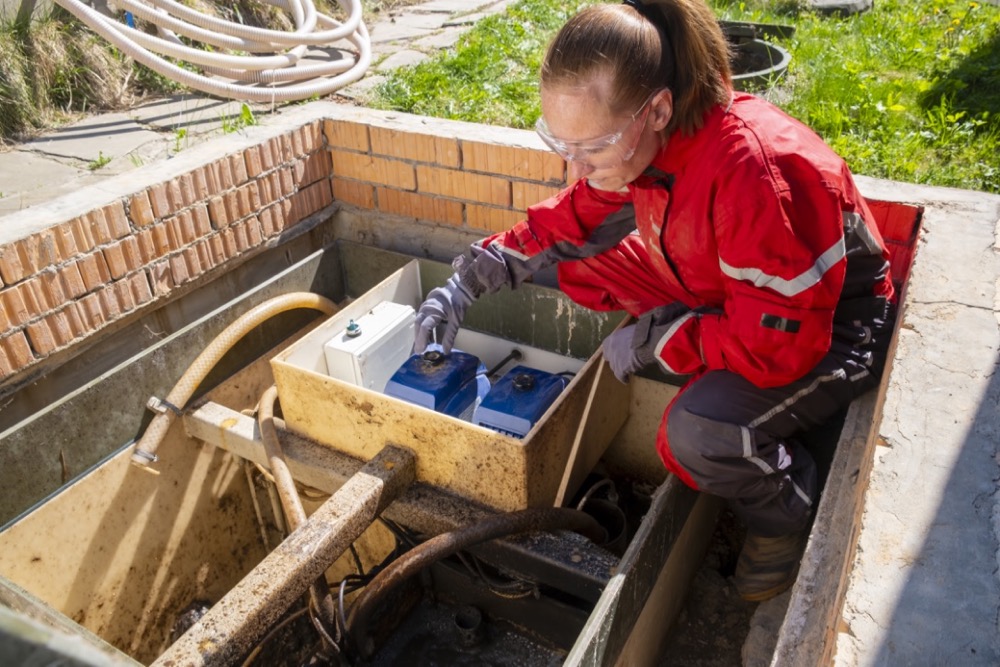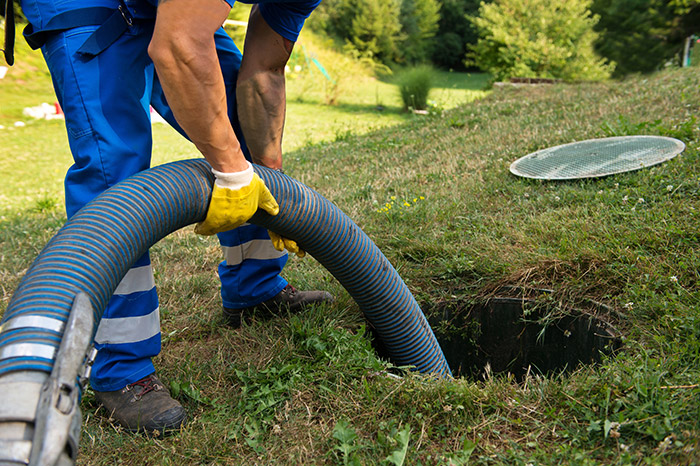
Why can't I put my soil absorption system (SAS) under my driveway?
Title 5 precludes using area under a driveway for a soil absorption system unless restrictions on the land leave no other feasible option. Impervious areas such as driveways or parking lots restrict air passing through the soils. In addition, the weight of the cars can compact the soil and may break distribution pipes. Lack of oxygen prevents the degradation of the septic tank effluent in the soil, and compaction reduces flow, making the system likely to clog and fail. Soil absorption systems which are placed under driveways are required, by 310 CMR 15.240 (7), to be vented to the atmosphere. Additional standards apply to system components in areas where automobile or other heavy equipment is anticipated.
How far away from property lines and existing buildings does my septic system need to be? h3
Title 5 (310 CMR 15.211) lists minimum setback distances, and the local Board of Health can provide more information about your particular situation.
I am thinking about adding living space to my home (family room, garage, etc), but I'm maintaining the same number of bedrooms. Am I required to have a Title 5 inspection to get a building permit? h3
A system must be inspected upon any change of use or expansion of use for which a building permit or occupancy permit is required. However, if the change of use or expansion does not increase the existing design flow, the requirement is for an assessment only, in order to determine the location of all system components, including the reserve area. This will ensure that the proposed construction is not placed on top of any system components. The requirement for an assessment can be waived if an official record exists that shows the location of system components as they relate to the proposed construction. (310 CMR 15.301(5).
Contact your local board of health to verify if local regulations require a full inspection.
Can a Board of Health require the replacement of an undersized septic tank?
Yes, if its continued use will jeopardize the soil absorption system or the environment. Any tank smaller than 1000 gallons may be judged to be too small, depending on individual circumstances.
Does a Board of Health have to issue a Disposal System Construction Permit (DSCP) for the replacement of a single component such as a Distribution Box or septic tank? h3
Yes. Title 5 allows system components to be replaced without replacing the entire system, but requires a DSCP and a Certificate of Compliance once the work is done (see Conditional Pass).
What are the advantages of pressure distribution for a septic system with a pump?
Although Title 5 does not require it, pressure distribution for systems with pumps generally results in a more efficient and longer-lasting system. Pressure distribution can be especially important when a reduction in distance to ground water is being requested for a mounded system.
Is it legal for the Board of Health to restrict the use of mounded systems for new construction?
Communities may have requirements more restrictive than DEP's provided correct procedures are followed in adopting them (310 CMR 15.003 (3)).
A property owner with a failing septic system is in the process of obtaining local approvals for an upgrade. In the meantime, the system is experiencing breakouts of sewage onto the ground. What should be done in the interim?
Breakout of sewage onto the ground is a significant threat to public health and the environment, and the Board of Health should take immediate action to address the situation. Interim steps could include requiring the system owner to seal off any discharges from the septic tank and begin a pumping program with a licensed septage hauler. Ultimately, responsibility for the failing system falls on the system owner, but Boards of Health have primary responsibility for enforcing Title 5 in order to ensure public health and safety.
Can MassDEP recommend a certified soil laboratory?
No. Massachusetts does not certify soils testing laboratories. You can inquire with your local Board of Health on any local labs that may provide that service or check the yellow pages under "testing laboratories".
For more information, contact Morse Engineering and Construction.
Source: mass.gov




